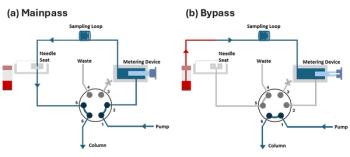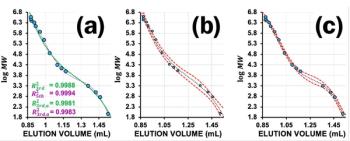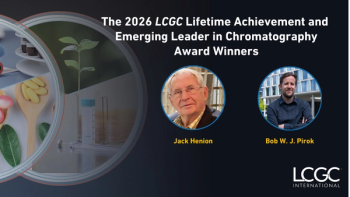
Linda Baine McGown to Receive EAS Award for Outstanding Achievements in the Fields of Analytical Chemistry
The EAS Award for Outstanding Achievements in the Fields of Analytical Chemistry will be presented to Linda Baine McGown at the Eastern Analytical Symposium (EAS) on November 14 in Princeton, New Jersey.
The EAS Award for Outstanding Achievements in the Fields of Analytical Chemistry will be presented to Linda Baine McGown at the Eastern Analytical Symposium (EAS) on November 14 in Princeton, New Jersey. McGown is the William Weightman Walker professor of the Department of Chemistry and Chemical Biology at Rensselaer Polytechnic Institute (Troy, New York).
McGown received her PhD in chemistry from the University of Washington (Seattle, Washington). She has been a Fellow of the American Association for the Advancement of Science since 2001 and received the New York Section of the Society for Applied Spectroscopy Gold Medal Award in 2004. She was included in in The Future of Women in Chemistry and Science program in honor of UNESCO declaring 2011 the International Year of Chemistry as one of “60 exemplary thinkers each speaking for 60 seconds about how to expand women’s leadership in the sciences, across all disciplines and sectors.” She has served on editorial boards of numerous journals, including Chemical and Engineering News, Analytical Chemistry, Applied Spectroscopy, Analytica Chimica Acta, and Life.
In her early career, McGown exploited the unique capabilities of frequency-domain fluorescence lifetime spectroscopy to create information-rich, multidimensional data formats to characterize and classify complex samples such as human serum, humic substances, and petrolatums. She then integrated fluorescence lifetime detection into separation techniques, including high performance liquid chromatography (HPLC) and capillary electrophoresis (CE), to obtain complete fluorescence lifetime profiles of each peak on-the-fly. One important product of this research is a four-decay approach to DNA sequencing that provides unprecedented resolution of overlapping DNA strands without any assumptions about the number or nature of the components contributing to the signal at each point in the capillary electropherogram.
McGown took an interest in aptamers in the 1990s, which were being investigated primarily as novel pharmaceuticals. Aptamers are now considered to be a mainstream alternative to antibodies for targets ranging from small molecules to large proteins and even whole cells. In her own research, McGown introduced aptameric stationary phases in capillary electrochromatography for chiral and chemical separations, and an affinity MALDI mass spectrometry platform for rapid screening of affinity protein capture directly at aptamer-modified MALDI probe surfaces. Her current work focuses on genome-inspired approaches to aptamer discovery to complement combinatorial methods, to explore a naturally evolved sequence space often underrepresented in combinatorial libraries. Other current research interests include reversible biogels formed through self-assembly of guanosine compounds into hydrogen-bonded tetrads, separation of DNA by sequence, and prebiotic chemistry on early Earth.
Newsletter
Join the global community of analytical scientists who trust LCGC for insights on the latest techniques, trends, and expert solutions in chromatography.




